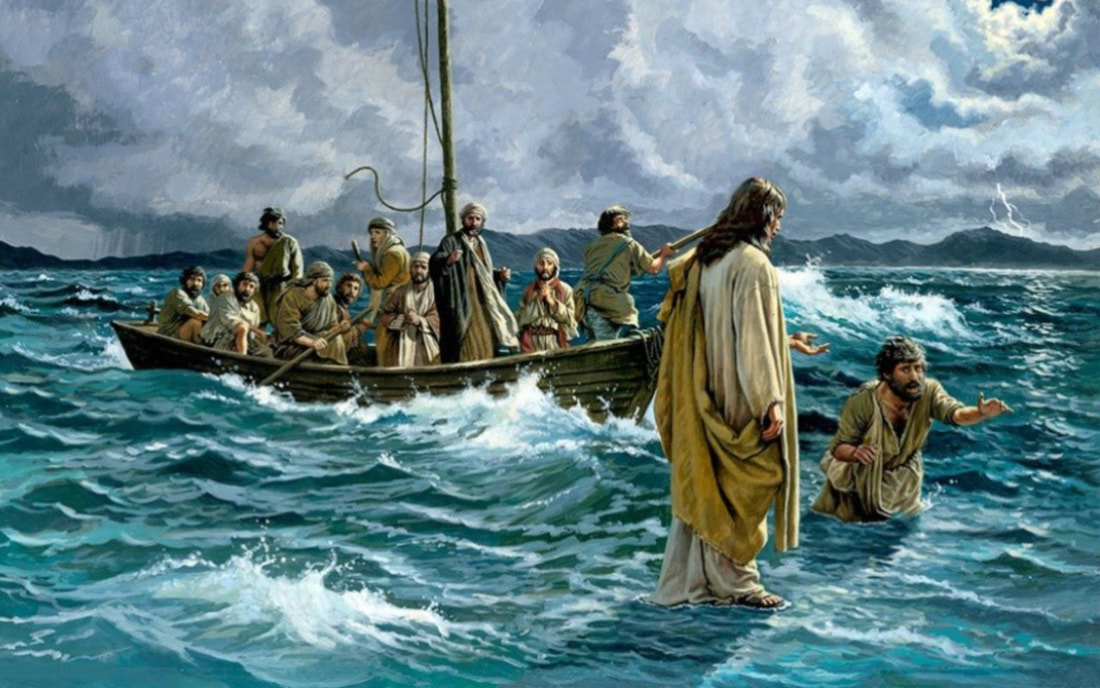|
We close of Part 1 of The Lord with chapters on the apostles and the beatitudes. He discusses how completely ordinary the disciples were. How these are not great intellectual minds, or great religious leaders. These were, by all accounts, supremely unqualified men for the role of leading the Church in her first days after the Ascension. We have only to look at the Gospels to realize this fact. At every turn, the disciples are clueless. They never seem to understand a word Jesus says. He has to constantly remind them, teach them, and reteach them. “Do you still not understand?” (Matthew 16:9) “You faithless generation, how much longer must I be among you? How much longer must I put up with you?” (Mark 9:19) “You of little faith, why did you doubt?” (Matthew 14:31) They are stuck thinking that Jesus is a Messiah like the conquering king the Pharisees told them about. They can’t even begin to comprehend who Jesus is. To be fair, we can’t really blame them. Nobody can ever truly comprehend the divine mystery. But the interesting thing here is that the Gospels seem to very intentionally tell us that the disciples were clueless. And yet Jesus chose them anyway. Jesus chose them to spread his message after his ascension. Jesus chose them to act as his representatives, to speak in his stead. “You did not choose me but I chose you. And I appointed you to go and bear fruit, fruit that will last, so that the Father will give you whatever you ask him in my name.” (John 15:16) Despite all of their faults, these are his chosen apostles. “What is an apostle really? Frankly, the impression we get from the New Testament hardly permits us to claim that these men were great or ingenious . . . An apostle then is one who is sent. It is not he who speaks, but Christ in him. The apostle is filled with Christ, saturated with thought of Christ; the Lord, whom he represents, is the substance of his life. What he teaches is not what he has learned from personal ‘experience’ or ‘revelation,’ it is God’s word, uttered upon God’s command: ‘Go, therefore, and make disciples of all nations . . . teaching them to observe all that I have commanded you.’ (Matthew 28:19)” -Romano Guardini ("The Lord") These men were not born or bred for this, or even suited for it. They were chosen. God chose them to be the ones through whom He speaks. They are, as Paul puts it, “fools for the sake of Christ.” (1 Corinthians 4:10) They are to be persecuted and despised as Jesus was, for his sake, and not because of their merit but because they were chosen for it. This idea is echoed right after we heard the Beatitudes in Luke’s Gospel. “Bless those who curse you, pray for those who abuse you. If anyone strikes you on the cheek, offer the other also; and from anyone who takes away your coat do not withhold even your shirt. Give to everyone who begs from you; and if anyone takes away your goods, do not ask for them again.” (Luke 6:28-30) By any worldly standard of justice or even simple self-preservation, that is foolishness. And yet, we’re called to do it. Like the apostles, we are called to be fools for Christ. I will end today’s reflection with a quote from the end of Part 1: Chapter XII: “This most certainly does not mean that one must behave like a weakling or surrender oneself to force. Rather, that man should extricate himself from the whole earthly business of defense and aggression, of blow and counterblow, of right and usurpation. He should emerge from the hue-and-cry of terrestrial forces and affiliations to share in the freedom that God alone has to give. The gist of the message lies in the words: “. . . and you shall be children of the Most High, for he is kind towards the ungrateful and evil.”
Now we begin to see what Jesus is driving at: a bearing in our relationship to others that is no less than divinely free—not what law and order demand, but what true liberty gives. The measure of that liberty is love, the love of God.” -Romano Guardini ("The Lord")
1 Comment
|
Series Info
Every day of Lent, I am writing a reflection piece on two chapters of "The Lord" by Romano Guardini. If you'd like to read or follow along, you can find the full calendar of where we're at below, or Click Here for the main landing page. Archives
April 2020
Categories
All
|

 RSS Feed
RSS Feed